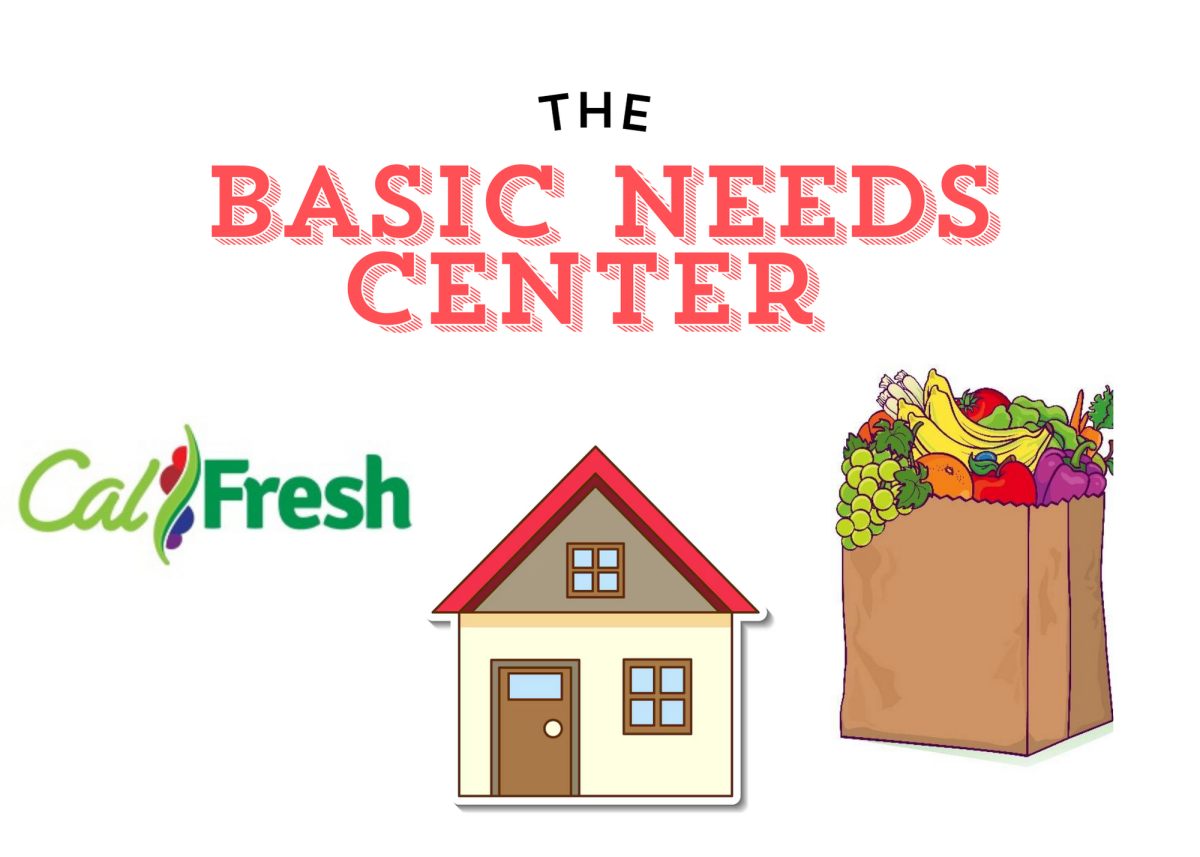The spring semester is here and the Basic Needs Center is growing and aiming to help students flourish by continuing its goal of creating an extensive network on campus that supports students with food, housing, clothing and hygiene resources.
The Basic Needs Center is a student-focused service whose mission is to aid students in education, housing and emergency circumstances. The center offers resources and strives to assist students in many aspects of their lives by partnering with local organizations, like Jovenes for housing and CalFresh for groceries. Since then, the center has expanded its offerings to include a more holistic approach.
While talking to the Student Services Program Specialist II, Lorena Cardozo, she mentioned the center’s changes in the last year, since last spring semester and gave a more in-depth view of the values of the Basic Needs Center to showcase the holistic approach the center aims for.
Cardozo explained that the number of students the center assists significantly increased in the last year. Cardoza said that due to an increase in the number of people who work at the center, they can help more students find aid in housing, food insecurity and overall school-natured issues.
“We have three case management, professional case management support staff that meet with our students, specifically who are experiencing homelessness, housing insecurity, any sort of domestic violence, or any type of situation like that,” Cardozo said. “That has helped in addressing students’ needs, especially in immediate crisis needs.”
Cardozo added that the center has been able to expand staffing in other departments, like the CalFresh food pantry, which allows for more resources for students. With the expansion of the staff in the program, Cardozo said that a primary goal for the center is to expand the resources available for students through increasing community partnerships.
However, the growth of staff and partnerships isn’t the only thing the Basic Needs Center strives to accomplish. The center also aims to break stigmas around receiving essential needed resources and spreading more awareness across campus.
The center wants to break the stigma surrounding people reaching out for help. Cardozo explained that some might be embarrassed to say that they need help or others might think that they are not in the position of someone who needs it. She said that this way of thinking should be dismantled and that receiving aid or asking for help should be socially accepted.
“There are so many students experiencing food and housing insecurity, and helping them realize you’re not alone, that there are so many students experiencing the same thing, is the whole purpose of the program,” Cardozo said. “To support our students and to provide and connect them with the resources that they’re going to benefit from.”
Cardozo said the first step is exposing the professors and staff of Mt. SAC to student’s basic needs and how the center is available to them. They also set up training for staff to become familiar with the center and how to handle students who come to them regarding needing aid effectively. They do this to bring awareness of insecurity across campus and classrooms so that people feel more comfortable taking that first step.
This level of comfort, where people can ask for help or if they need assistance, is done when the center focuses on providing empathy and emotional support for the students. Cardozo added that it’s the staff’s job to bring forth empathy when working with students, as some students deal with
trauma that should be acknowledged.
Mauro Perez, who uses the center, explains how he felt about the aid offered and how welcoming he found the Basic Need Center.
“They are very welcoming and friendly. They always greet you with a ‘hello’ and ‘How are you?” Perez said. “If we need any support, they’re always there to help or refer you to someone else who can help you.”
The Basic Needs Center is ready for the semester. It has hopes that in a year, the partnerships with local organizations will grow and that the number of people facing food and housing insecurities will decrease.
The Basic Needs Center can be found in building 9C from 8 a.m. to 5 p.m. Monday through Thursday and 8 a.m. to 4:30 p.m. on Fridays


